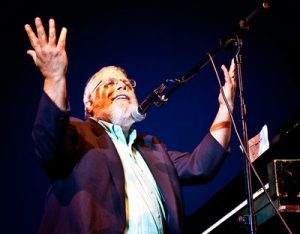For some of us, Yiddish is the language of loss. For others, it’s the language of punch lines, a comic, even raunchy, bit of business. But most of us, I suspect, are inclined to see Yiddish as a language of fragments, of bits and pieces left over from a now-vanished world.

Thanks to the artistry and dedication of Mr. Mlotek, a celebrated composer, music director and consultant as well as the Artistic Director of the National Yiddish Theater-Folksbiene, America’s oldest and only continuously running Yiddish theater troupe, a new generation of American Jews now has the opportunity to familiarize itself with the sounds -- and sensibility -- of what had once been the lingua franca of Ashkenazic Jewry.
Mr. Mlotek’s forthcoming concert, “One Hundred Years of Yiddish Theater Music,” which has been made possible by the DC-JCC and the generous support of the David D. and Betty Cooper Wallerstein Fund for Judaic Studies at GW, will range widely over, and expose us to, the varied musical genres that the Yiddish theater world made its own.
Moving from the patter of Gilbert & Sullivan to the jazzy inflections of George Gershwin, “One Hundred Years of Yiddish Theater Music” will not only leave us hungry for more. It will also free us of many of our preconceptions.

